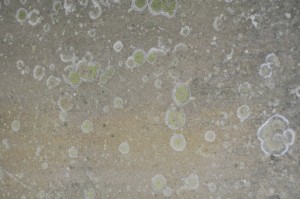Methods for Mold Control in Commercial HVAC Systems
Don’t let your HVAC system serve as a conduit for mold contamination.
 There are thousands of types of mold in the world, and about 10 percent of them actually prefer to live indoors. Considering that you can’t keep every inch of your property perfectly clean at all times, it’s highly likely that you already have some amount of mold on the premises. But just because mold is present doesn’t mean you have to let it take over. If mold gets out of control, you will end up with issues including odors, headaches, skin irritation, and allergy or cold-like symptoms. In fact, some experts believe that many people mistakenly believe they are coming down with a cold when in reality they are suffering from mold exposure in buildings with poor indoor air quality. If mold spores get into the HVAC system, individuals far from the original source of the mold can experience symptoms.
There are thousands of types of mold in the world, and about 10 percent of them actually prefer to live indoors. Considering that you can’t keep every inch of your property perfectly clean at all times, it’s highly likely that you already have some amount of mold on the premises. But just because mold is present doesn’t mean you have to let it take over. If mold gets out of control, you will end up with issues including odors, headaches, skin irritation, and allergy or cold-like symptoms. In fact, some experts believe that many people mistakenly believe they are coming down with a cold when in reality they are suffering from mold exposure in buildings with poor indoor air quality. If mold spores get into the HVAC system, individuals far from the original source of the mold can experience symptoms.
To help keep mold from causing indoor air quality issues in your property, make sure your commercial HVAC contractor has a plan for mold control. This plan should incorporate the following 3 methods.
Humidity Control: Mold can feed on all kinds of building materials from carpet to drywall, but it can’t thrive without one thing: moisture. Therefore by controlling moisture, you control mold. During the summer, your air conditioning system will naturally lower the humidity inside the building. But when you switch off the air, humidity can begin to rise, creating ideal conditions for mold. Your HVAC contractor should be able to provide a solution such as improved ventilation or a commercial grade dehumidifier.
Annual Maintenance: Annual HVAC maintenance is important for many reasons. One maintenance task that directly affects the amount of mold spores in your air is inspection of drain lines and condensate pans. These items must be kept clean so that mold doesn’t start growing inside of them, and also to help keep overall humidity in the HVAC equipment room down. Another maintenance task that needs to be completed conscientiously is cleaning or replacement of air filters. Clean filters will be more effective in trapping mold spores before they have a chance to spread to other parts of the building.
Specialized Cleaning Services: So far, the methods we’ve mentioned have been more about preventing the conditions that lead to mold growth than actually killing mold. Now it’s time to hit mold where it lives with specialized cleaning services. In addition to cleaning mold off of all non-porous surfaces using detergent and water, you may need to have your HVAC contractor use special EPA-registered coil cleaners to kill mold inside your AC unit.
